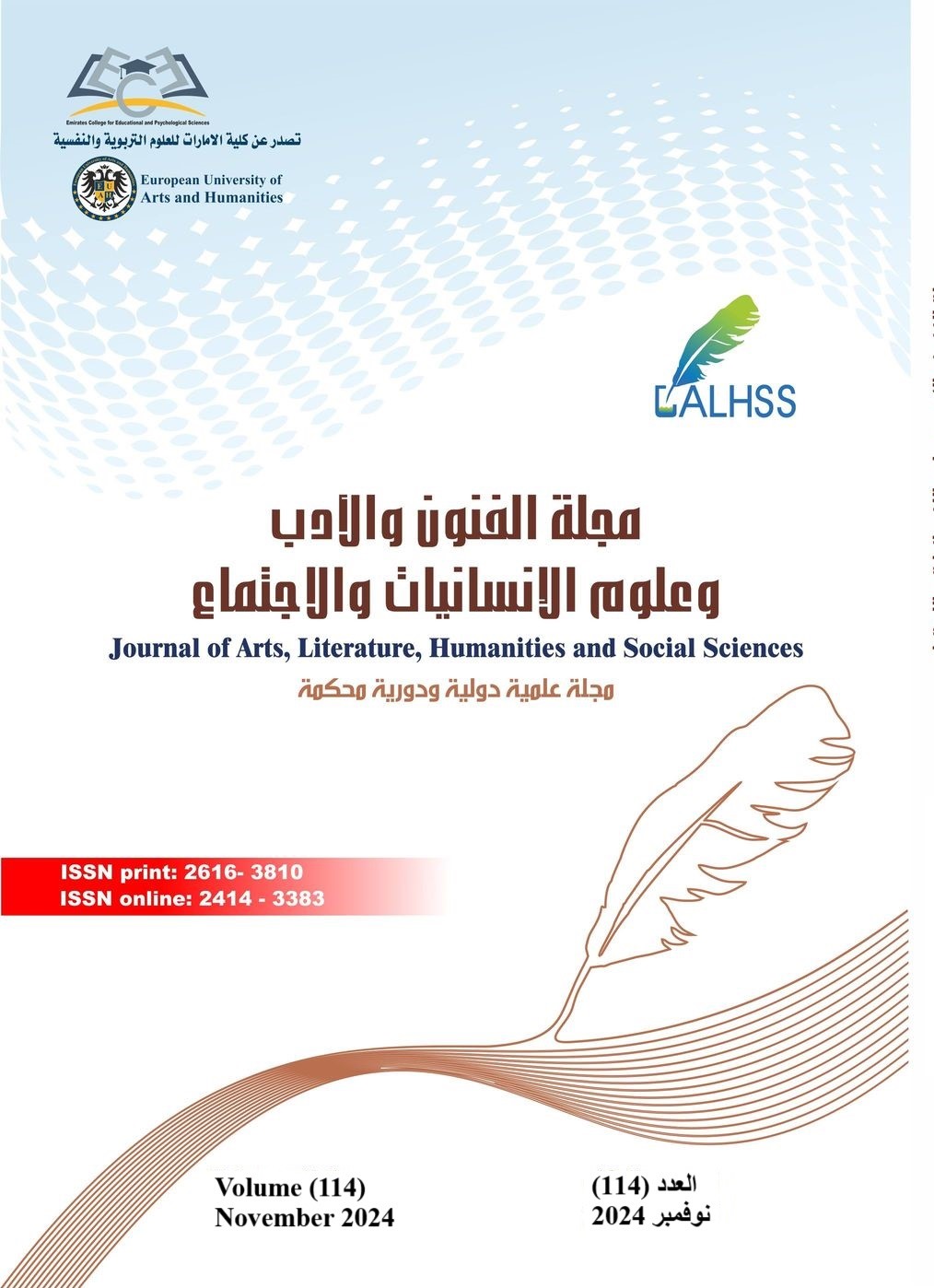Employing Theatrical Narrative Elements in the Play (Pygmalion) by Tawfiq Al-Hakim
Abstract
Theatrical art in general emerges from internal or external conflicts, These conflicts reveal to us the impact that theatrical art has on the lives of the writer and the recipient a like. The artist shows us his works, anticipating whether people will accept or reject his art. That anticipation creates various conflicts It is possible to search the comparison between what Tawfiq al-Hakim that creative artist, lived and what he endured in life as a result of his creativity. Al-Hakim projects what is within himself onto the characters of his play, embodying that suffering that oscillates between acceptance and rejection, encouragement and frustration. Anyone who contemplates the history of Tawfiq al-Hakim and his personal life will notice a wide dialectic and a clear oscillation in the stability of his creative self and its confrontation with a life that is full of internal obstacles and inhibitors - that is, on the scale of his family - or external - that is, on the scope of those around him in his society - these obstacles inflamed the heart of our writer, His problem was produced in the form of a theatrical text that was immortalized in the minds of the recipients. In this research, we will shed light on the conflict of art and life and Al-Hakim’s deepening of this conflict by employing the elements of theatrical narrative in it.
References
2. العشماوي، محمَّد زكي، (1994م)، دراسات في النَّقد المسرحيّ والأدب المقارن، مصر: القاهرة، النَّاشر: دار الشُّروق.
3. الدٌّسوقي، عمر، د.ت، المسرحيِّة نشأتها وتاريخها وأصولها، النَّاشر: دار الفكر العربيّ.
4. الحكيم، توفيق، بيجماليون، النَّاشر: مكتبة مصر.
5. الرّويلي، ميجان، البازعي، سعد، (2002م)، ط3، دليل النّاقد الأدبي (إضاءة لأكثر من سبعين تيَّارًا ومصطلحًا معاصرًا)، المغرب: الدَّار البيضاء، النَّاشر: المركز الثَّقافيّ العربيّ.
6. الجبّوري، محمَّد، د.ت، البنية الدَّاخليِّة للمسرحيِّة، العراق، النَّاشر: منشورات ضفاف.
7. إسماعيل، عزّ الدِّين، (1980م)، قضايا الإنسان في الأدب المسرحي المعاصر، النَّاشر: دار الفكر العربيّ.
8. إيجري، لابوس، فنّ كتابة المسرحيِّة، ترجمة: دريني خشبة النَّاشر: مكتبة الأنجلو المصريِّة.
9. أدهم، إسماعيل، ناجي، إبراهيم، 2012م، توفيق الحكيم، القاهرة، النَّاشر: مؤسّسة هنداوي.
Copyright (c) 2024 أ. أمل عبد الله البُقميّ

This work is licensed under a Creative Commons Attribution-ShareAlike 4.0 International License.



